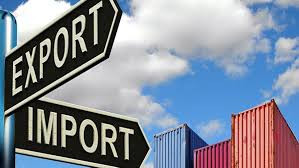
Last week’s article described the problem of import customs fraud. It explained how unscrupulous importers use methods such as undervaluation, overvaluation, mis-declaration of goods, mis-declaration of country of origin, round tripping, counterfeit goods and the removal of goods in transit, in order to gain unfair advantage in the domestic market. The article explained how this practice robs governments of much needed customs revenue. Customs fraud also leads to the displacement of jobs.
The non-payment of duties makes fraudulent importers more competitive than local firms. It is also important to highlight that last week’s essay focused strictly on fraud which related to imports. That is because dedicating time to both imports and exports would require much more writing space and commitment. This article will continue with a similar focus on imports.
In Zimbabwe, the principal customs authority is the Zimbabwe Revenue Authority (Zimra). It works with the assistance and cooperation of various government agencies such as the Zimbabwe Republic Police (ZRP), the ministries of Agriculture and that of Health, among others. These agencies assist with their expertise in their respective areas of competence.
A customs system which is good at facilitating the speedy movement of imports and exports, at a reasonable cost, is essential for economic development.
Typically, a customs administration system aims to achieve one or more of the following four goals; to protect locals from illicit substances, toxic foods, substandard or counterfeit products; to gain revenue on behalf of government through the enforcement of import duties; to facilitate the low-cost and fast movement of goods at the borders in order to make the economy more competitive; and, to protect domestic industries from more competitive foreign firms, in order to preserve local jobs and government revenues from corporate income taxes.
However, customs import fraud works against the fulfilment of all the above goals. The creation of a competitive customs system will ensure that import fraud is kept at a minimum, whilst the cross-border movement of both imports and exports is processed at impressive speeds, which support economic development.
Solutions
By now, Zimra has considerable information on the exact types of problematic goods, which are notorious for being imported into the country, fraudulently. As an example, these may include counterfeit goods, perishable foods such as frozen chicken, other types of groceries and vehicles.
- Harare businesswoman turns heat on police CCU over 'bias'
- Letter to my people: Criminals are hiding in plain sight
- Zimra seizes CCC campaign vehicle
- 5 Zim cops off to South Sudan
Keep Reading
The list of such high-risk goods, should ideally lead to the creation of special departments, in the customs administration system, which deal with problematic and at high risk goods. That means, supply chains relating to such products need to be regularly monitored and investigated from their overseas source countries, on arrival of such goods at Zimbabwe’s borders and even when they are being sold in local supermarkets and other distribution channels.
The specialised customs departments can be constituted of officials from Zimra, municipalities, and the ZRP. These units should grow their expertise in investigating the aforementioned high risk products, until they are extremely proficient at apprehending fraudsters for import offenses. If the specialised departments become exceedingly successful, import customs fraud should decline.
Reference pricing is a method which compares the price of goods as declared by importers, at the country’s borders, against the prices of similar goods in the international market.
Reference pricing
When reference pricing is used by customs officials to evaluate the worth of imports, it can help to eliminate the problem of undervaluation or the overvaluation of imports. Using reference pricing, unusually low prices, when declared by unscrupulous importers, can be quickly detected as possible customs fraud, then scrutinised further.
In South Africa, for example, customs officials consider the cheapest price for a good, which can be obtained on the international markets, their reference price. If a valuation difference between the price declared by importer and the reference price is within the range of 0,1%-25%, South African customs officials usually consider it an honest mistake.
In that case, the imported goods are simply valued at the prevailing reference price, whilst no penalties are applied. However, a 25% to 60% difference can be deemed as non-compliance. The goods are ultimately valued at reference price, whilst the non -compliance can attract penalties, such as the removal of the importer, from a list of trusted importers.
On the other hand, a disparity which is greater than 60% is usually considered as fraud and carries tough penalties. The implementation of a reference pricing system has been observed to lead to a notable improvement in customs compliance, in countries such as South Africa and Japan, for example.
Currently, customs administration in Zimbabwe comprises Zimra working alongside other agencies such as the ZRP, the army, and others, in a fragmented manner. Although each agency brings its unique expertise, the problem with this structure is that operational planning is similarly done in a fragmented manner, with each branch reporting to its conventional chain of command. For instance, soldiers at borders continue to be accountable to their superiors in the army, and regularly take instructions from them, instead of Zimra, which should have primary responsibility over the country’s borders.
In that regard, it is essential to consider the consolidation of these fragmented agencies, into one organisation. In South Africa, for example, after noting challenges associated with fragmentation, the different customs agencies were consolidated into a single organisation now known as the Border Management Authority (BMA). A BMA would be responsible for unified planning and accountability channels, for all customs and border management staff.
In that case, planning would be more in sync, and better placed to respond to prevailing dynamics and changes, immediately as they occur. There would no longer be a broken or less responsive chain of coordination. This would result in the speedy facilitation of trade and more robust enforcement of the country’s laws.
In order to facilitate the fast movement of goods, competent customs organisations around the world have been increasingly shifting their focus from physical control of goods to pre-arrival and post-release verification. Indeed, physical inspections need to be kept at a minimal because they are costly for both customs officials and importers. They are costly in terms of time and money.
Tutani is a political economy analyst - [email protected]






